- Home
- Arthur Conan Doyle
The Man from Archangel, and Other Tales of Adventure
The Man from Archangel, and Other Tales of Adventure Read online
Produced by Chris Curnow, Joseph Cooper, Mary Meehan andthe Online Distributed Proofreading Team athttps://www.pgdp.net
THE MAN FROM ARCHANGEL
_and Other Tales of Adventure_
A. CONAN DOYLE
NEW YORK GEORGE H. DORAN COMPANY
COPYRIGHT, 1905, 1908, 1909, 1910, 1911, 1913, 1914, 1918, 1919, BY A. CONAN DOYLE
COPYRIGHT, 1910, BY CHARLES SCRIBNER'S SONS
COPYRIGHT, 1911, BY ASSOCIATED SUNDAY MAGAZINES, INC.
COPYRIGHT, 1908, BY THE MCCLURE COMPANY
COPYRIGHT, 1900, 1902, BY THE S. S. MCCLURE COMPANY
COPYRIGHT, 1894, D. APPLETON & COMPANY
PRINTED IN THE UNITED STATES OF AMERICA
CONTENTS
TALES OF ADVENTURE
I DEBUT OF BIMBASHI JOYCE
II THE SURGEON OF GASTER FELL
III BORROWED SCENES
IV THE MAN FROM ARCHANGEL
V THE GREAT BROWN-PERICORD MOTOR
VI THE SEALED ROOM
TALES OF MEDICAL LIFE
VII A PHYSIOLOGIST'S WIFE
VIII BEHIND THE TIMES
IX HIS FIRST OPERATION
X THE THIRD GENERATION
XI THE CURSE OF EVE
XII A MEDICAL DOCUMENT
XIII THE SURGEON TALKS
XIV THE DOCTORS OF HOYLAND
XV CRABBE'S PRACTICE
TALES OF ADVENTURE
I
THE DEBUT OF BIMBASHI JOYCE
It was in the days when the tide of Mahdism, which had swept in such aflood from the great Lakes and Darfur to the confines of Egypt, had atlast come to its full, and even begun, as some hoped, to show signs of aturn. At its outset it had been terrible. It had engulfed Hicks's army,swept over Gordon and Khartoum, rolled behind the British forces as theyretired down the river, and finally cast up a spray of raiding partiesas far north as Assouan. Then it found other channels to east and towest, to Central Africa and to Abyssinia, and retired a little on theside of Egypt. For ten years there ensued a lull, during which thefrontier garrisons looked out upon those distant blue hills of Dongola.Behind the violet mists which draped them, lay a land of blood andhorror. From time to time some adventurer went south towards thosehaze-girt mountains, tempted by stories of gum and ivory, but none everreturned. Once a mutilated Egyptian and once a Greek woman, mad withthirst and fear, made their way to the lines. They were the only exportsof that country of darkness. Sometimes the sunset would turn thosedistant mists into a bank of crimson, and the dark mountains would risefrom that sinister reek like islands in a sea of blood. It seemed a grimsymbol in the southern heaven when seen from the fort-capped hills byWady Halfa.
Ten years of lust in Khartoum, ten years of silent work in Cairo, andthen all was ready, and it was time for civilisation to take a tripsouth once more, travelling, as her wont is, in an armoured train.Everything was ready, down to the last pack-saddle of the last camel,and yet no one suspected it, for an unconstitutional Government has itsadvantages. A great administrator had argued, and managed, and cajoled;a great soldier had organised and planned, and made piastres do the workof pounds. And then one night these two master spirits met and claspedhands, and the soldier vanished away upon some business of his own. Andjust at that very time Bimbashi Hilary Joyce, seconded from the RoyalMallow Fusiliers, and temporarily attached to the Ninth Soudanese, madehis first appearance in Cairo.
Napoleon had said, and Hilary Joyce had noted, that great reputationsare only to be made in the East. Here he was in the East with four tincases of baggage, a Wilkinson sword, a Bond's slug-throwing pistol, anda copy of _Green's Introduction to the Study of Arabic_. With such astart, and the blood of youth running hot in his veins, everythingseemed easy. He was a little frightened of the General, he had heardstories of his sternness to young officers, but with tact and suavity hehoped for the best. So, leaving his effects at Shepheard's Hotel, hereported himself at headquarters.
It was not the General, but the head of the Intelligence Department whoreceived him, the Chief being still absent upon that business which hadcalled him. Hilary Joyce found himself in the presence of a short,thick-set officer, with a gentle voice and a placid expression whichcovered a remarkably acute and energetic spirit. With that quiet smileand guileless manner he had undercut and outwitted the most cunning ofOrientals. He stood, a cigarette between his fingers, looking at thenew-comer.
"I heard that you had come. Sorry the Chief isn't here to see you. Goneup to the frontier, you know."
"My regiment is at Wady Halfa. I suppose, sir, that I should reportmyself there at once?"
"No; I was to give you your orders." He led the way to a map upon thewall, and pointed with the end of his cigarette. "You see this place.It's the Oasis of Kurkur--a little quiet, I am afraid, but excellentair. You are to get out there as quick as possible. You'll find acompany of the Ninth, and half a squadron of cavalry. You will be incommand."
Hilary Joyce looked at the name, printed at the intersection of twoblack lines, without another dot upon the map for several inches roundit.
"A village, sir?"
"No, a well. Not very good water, I'm afraid, but you soon getaccustomed to natron. It's an important post, as being at the junctionof two caravan routes. All routes are closed now, of course, but stillyou never know who _might_ come along them."
"We are there, I presume, to prevent raiding?"
"Well, between you and me, there's really nothing to raid. You are thereto intercept messengers. They must call at the wells. Of course you haveonly just come out, but you probably understand already enough about theconditions of this country to know that there is a great deal ofdisaffection about, and that the Khalifa is likely to try and keep intouch with his adherents. Then, again, Senoussi lives up that way"--hewaved his cigarette to the westward--"the Khalifa might send a messageto him along that route. Anyhow, your duty is to arrest every one comingalong, and get some account of him before you let him go. You don't talkArabic, I suppose?"
"I am learning, sir."
"Well, well, you'll have time enough for study there. And you'll have anative officer, Ali something or other, who speaks English, and caninterpret for you. Well, good-bye--I'll tell the Chief that you reportedyourself. Get on to your post now as quickly as you can."
Railway to Baliani, the post-boat to Assouan, and then two days on acamel in the Libyan Desert, with an Ababdeh guide, and threebaggage-camels to tie one down to their own exasperating pace. However,even two and a half miles an hour mount up in time, and at last, on thethird evening, from the blackened slag-heap of a hill which is calledthe Jebel Kurkur, Hilary Joyce looked down upon a distant clump ofpalms, and thought that this cool patch of green in the midst of themerciless blacks and yellows was the fairest colour effect that he hadever seen. An hour later he had ridden into the little camp, the guardhad turned out to salute him, his native subordinate had greeted him inexcellent English, and he had fairly entered into his own.
It was not an exhilarating place for a lengthy residence. There was onelarge bowl-shaped, grassy depression sloping down to the three pits ofbrown and brackish water. There was the grove of palm trees also,beautiful to look upon, but exasperating in view of the fact that Naturehas provided her least shady trees on the very spot where shade isneeded most. A single widespread acacia did something to restore thebalance. Here Hilary Joyce slumbered in the heat, and in the cool heinspected his square-shouldered, spindle-shanked Soudanese, with theircheery black faces and their funny little pork-pie forage cap
s. Joycewas a martinet at drill, and the blacks loved being drilled, so theBimbashi was soon popular among them. But one day was exactly likeanother. The weather, the view, the employment, the food--everything wasthe same. At the end of three weeks he felt that he had been there forinterminable years. And then at last there came something to break themonotony.
One evening, as the sun was sinking, Hilary Joyce rode slowly down theold caravan road. It had a fascination for him, this narrow track,winding among the boulders and curving up the nullahs, for he rememberedhow in the map it had gone on and on, stretching away into the unknownheart of Africa. The countless pads of innumerable camels through manycenturies had beaten it smooth, so that now, unused and deserted, itstill wound away, the strangest of roads, a foot broad, and perhaps twothousand miles in length. Joyce wondered as he rode how long it wassince any traveller had journeyed up it from the south, and then heraised his eyes, and there was a man coming along the path.
For an instant Joyce thought that it might be one of his own men, but asecond glance assured him that this could not be so. The stranger wasdressed in the flowing robes of an Arab, and not in the close-fittingkhaki of a soldier. He was very tall, and a high turban made him seemgigantic. He strode swiftly along, with head erect, and the bearing of aman who knows no fear.
Who could he be, this formidable giant coming out of the unknown? Thepercursor possibly of a horde of savage spearmen. And where could hehave walked from? The nearest well was a long hundred miles down thetrack. At any rate the frontier post of Kurkur could not afford toreceive casual visitors. Hilary Joyce whisked round his horse, gallopedinto camp, and gave the alarm. Then, with twenty horsemen at his back,he rode out again to reconnoitre.
The man was still coming on in spite of these hostile preparations. Foran instant he had hesitated when first he saw the cavalry, but escapewas out of the question, and he advanced with the air of one who makesthe best of a bad job. He made no resistance, and said nothing when thehands of two troopers clutched at his shoulders, but walked quietlybetween their horses into camp. Shortly afterwards the patrols came inagain. There were no signs of any Dervishes. The man was alone. Asplendid trotting camel had been found lying dead a little way down thetrack. The mystery of the stranger's arrival was explained. But why, andwhence, and whither?--these were questions for which a zealous officermust find an answer.
Hilary Joyce was disappointed that there were no Dervishes. It wouldhave been a great start for him in the Egyptian army had he fought alittle action on his own account. But even as it was, he had a rarechance of impressing the authorities. He would love to show his capacityto the head of the Intelligence, and even more to that grim Chief whonever forgot what was smart, or forgave what was slack. The prisoner'sdress and bearing showed that he was of importance. Mean men do not ridepure-bred trotting camels. Joyce sponged his head with cold water, dranka cup of strong coffee, put on an imposing official tarboosh instead ofhis sun-helmet, and formed himself into a court of inquiry and judgmentunder the acacia tree.
He would have liked his people to have seen him now, with his two blackorderlies in waiting, and his Egyptian native officer at his side. Hesat behind a camp-table, and the prisoner, strongly guarded, was led upto him. The man was a handsome fellow, with bold grey eyes and a longblack beard.
"Why!" cried Joyce, "the rascal is making faces at me."
A curious contraction had passed over the man's features, but so swiftlythat it might have been a nervous twitch. He was now a model of Orientalgravity.
"Ask him who he is, and what he wants?"
The native officer did so, but the stranger made no reply, save that thesame sharp spasm passed once more over his face.
"Well, I'm blessed!" cried Hilary Joyce. "Of all the impudentscoundrels! He keeps on winking at me. Who are you, you rascal? Give anaccount of yourself! D'ye hear?"
But the tall Arab was as impervious to English as to Arabic. TheEgyptian tried again and again. The prisoner looked at Joyce with hisinscrutable eyes, and occasionally twitched his face at him, but neveropened his mouth. The Bimbashi scratched his head in bewilderment.
"Look here, Mahomet Ali, we've got to get some sense out of this fellow.You say there are no papers on him?"
"No, sir; we found no papers."
"No clue of any kind?"
"He has come far, sir. A trotting camel does not die easily. He has comefrom Dongola, at least."
"Well, we must get him to talk."
"It is possible that he is deaf and dumb."
"Not he. I never saw a man look more all there in my life."
"You might send him across to Assouan."
"And give some one else the credit! No, thank you. This is my bird. Buthow are we going to get him to find his tongue?"
The Egyptian's dark eyes skirted the encampment and rested on the cook'sfire.
"Perhaps," said he, "if the Bimbashi thought fit----" He looked at theprisoner and then at the burning wood.
"No, no, it wouldn't do. No, by Jove, that's going too far."
"A very little might do it."
"No, no. It's all very well here, but it would sound just awful if everit got as far as Fleet Street. But, I say," he whispered, "we mightfrighten him a bit. There's no harm in that."
"No, sir."
"Tell them to undo the man's galabeeah. Order them to put a horseshoe inthe fire and make it red-hot."
The prisoner watched the proceedings with an air which had more ofamusement than of uneasiness. He never winced as the black sergeantapproached with the glowing shoe held upon two bayonets.
"Will you speak now?" asked the Bimbashi savagely.
The prisoner smiled gently and stroked his beard.
"Oh, chuck the infernal thing away!" cried Joyce, jumping up in apassion. "There's no use trying to bluff the fellow. He knows we won'tdo it. But I _can_ and I _will_ flog him, and you tell him from me thatif he hasn't found his tongue by to-morrow morning, I'll take the skinoff his back as sure as my name's Joyce. Have you said all that?"
"Yes, sir."
"Well, you can sleep upon it, you beauty, and a good night's rest may itgive you!"
He adjourned the Court, and the prisoner, as imperturbable as ever, wasled away by the guard to his supper of rice and water.
Hilary Joyce was a kind-hearted man, and his own sleep was considerablydisturbed by the prospect of the punishment which he must inflict nextday. He had hopes that the mere sight of the koorbash and the thongsmight prevail over his prisoner's obstinacy. And then, again, he thoughthow shocking it would be if the man proved to be really dumb after all.The possibility shook him so that he had almost determined by daybreakthat he would send the stranger on unhurt to Assouan. And yet what atame conclusion it would be to the incident! He lay upon his angareebstill debating it when the question suddenly and effectively settleditself. Ali Mahomet rushed into his tent.
"Sir," he cried, "the prisoner is gone!"
"Gone!"
"Yes, sir, and your own best riding camel as well. There is a slit cutin the tent, and he got away unseen in the early morning."
The Bimbashi acted with all energy. Cavalry rode along every track;scouts examined the soft sand of the wadys for signs of the fugitive,but no trace was discovered. The man had utterly disappeared. With aheavy heart Hilary Joyce wrote an official report of the matter andforwarded it to Assouan. Five days later there came a curt order fromthe Chief that he should report himself there. He feared the worst fromthe stern soldier, who spared others as little as he spared himself.
And his worst forebodings were realised. Travel-stained and weary, hereported himself one night at the General's quarters. Behind a tablepiled with papers and strewn with maps the famous soldier and his Chiefof Intelligence were deep in plans and figures. Their greeting was acold one.
"I understand, Captain Joyce," said the General, "that you have alloweda very important prisoner to slip through your fingers."
"I am sorry, sir."
"No doubt. But tha
t will not mend matters. Did you ascertain anythingabout him before you lost him?"
"No, sir."
"How was that?"
"I could get nothing out of him, sir."
"Did you try?"
"Yes, sir; I did what I could."
"What did you do?"
"Well, sir, I threatened to use physical force."
"What did he say?"
"He said nothing."
"What was he like?"
"A tall man, sir. Rather a desperate character, I should think."
"Any way by which we could identify him?"
"A long black beard, sir. Grey eyes. And a nervous way of twitching hisface."
"Well, Captain Joyce," said the General, in his stern, inflexible voice,"I cannot congratulate you upon your first exploit in the Egyptian army.You are aware that every English officer in this force is a picked man.I have the whole British army from which to draw. It is necessary,therefore, that I should insist upon the very highest efficiency. Itwould be unfair upon the others to pass over any obvious want of zeal orintelligence. You are seconded from the Royal Mallows, I understand?"
"Yes, sir."
"I have no doubt that your Colonel will be glad to see you fulfillingyour regimental duties again."
Hilary Joyce's heart was too heavy for words. He was silent.
"I will let you know my final decision to-morrow morning."
Joyce saluted and turned upon his heel.
"You can sleep upon that, you beauty, and a good night's rest may itgive you!"
Joyce turned in bewilderment. Where had those words been used before?Who was it who had used them?
The General was standing erect. Both he and the Chief of theIntelligence were laughing. Joyce stared at the tall figure, the erectbearing, the inscrutable grey eyes.
"Good Lord!" he gasped.
"Well, well, Captain Joyce, we are quits!" said the General, holding outhis hand. "You gave me a bad ten minutes with that infernal red-hothorseshoe of yours. I've done as much for you. I don't think we canspare you for the Royal Mallows just yet awhile."
"But, sir; but----!"
"The fewer questions the better, perhaps. But of course it must seemrather amazing. I had a little private business with the Kabbabish. Itmust be done in person. I did it, and came to your post in my return. Ikept on winking at you as a sign that I wanted a word with you alone."
"Yes, yes. I begin to understand."
"I couldn't give it away before all those blacks, or where should I havebeen the next time I used my false beard and Arab dress? You put me in avery awkward position. But at last I had a word alone with your Egyptianofficer, who managed my escape all right."
"He! Mahomet Ali!"
"I ordered him to say nothing. I had a score to settle with you. But wedine at eight, Captain Joyce. We live plainly here, but I think I can doyou a little better than you did me at Kurkur."

 The Lost World
The Lost World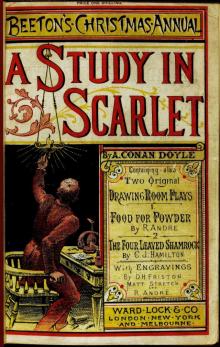 A Study in Scarlet
A Study in Scarlet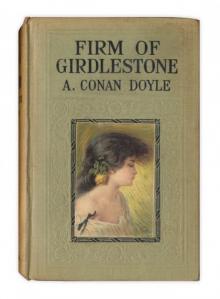 The Firm of Girdlestone
The Firm of Girdlestone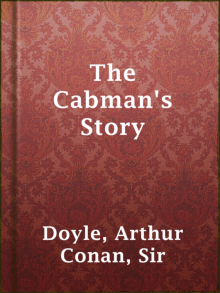 The Cabman's Story
The Cabman's Story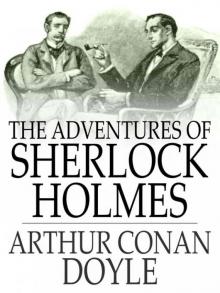 The Adventures of Sherlock Holmes
The Adventures of Sherlock Holmes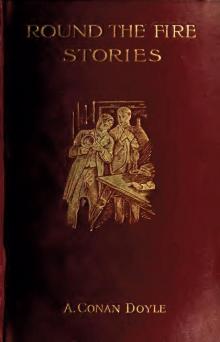 Round the Fire Stories
Round the Fire Stories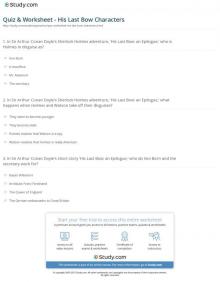 His Last Bow: An Epilogue of Sherlock Holmes
His Last Bow: An Epilogue of Sherlock Holmes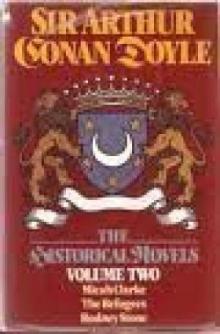 Micah Clarke
Micah Clarke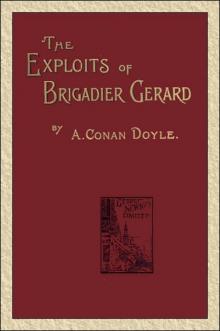 The Exploits of Brigadier Gerard
The Exploits of Brigadier Gerard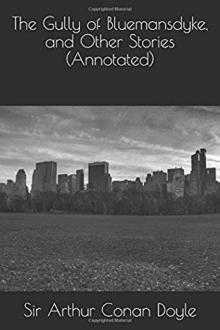 The Gully of Bluemansdyke, and Other stories
The Gully of Bluemansdyke, and Other stories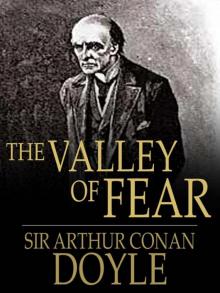 The Valley of Fear
The Valley of Fear The Last of the Legions and Other Tales of Long Ago
The Last of the Legions and Other Tales of Long Ago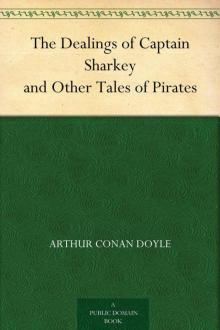 The Dealings of Captain Sharkey, and Other Tales of Pirates
The Dealings of Captain Sharkey, and Other Tales of Pirates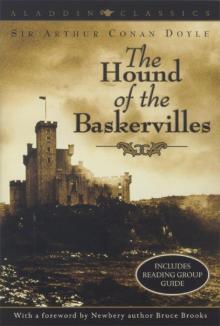 The Hound of the Baskervilles
The Hound of the Baskervilles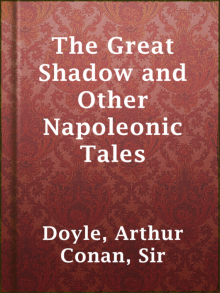 The Great Shadow and Other Napoleonic Tales
The Great Shadow and Other Napoleonic Tales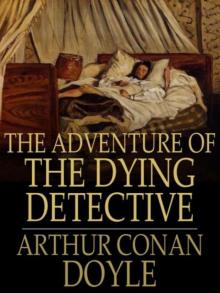 The Adventure of the Dying Detective
The Adventure of the Dying Detective The Man from Archangel, and Other Tales of Adventure
The Man from Archangel, and Other Tales of Adventure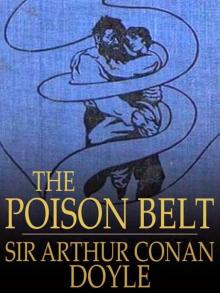 The Poison Belt
The Poison Belt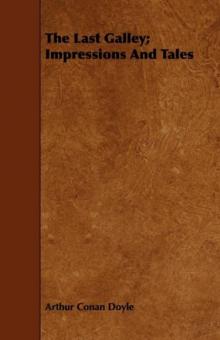 The Last Galley; Impressions and Tales
The Last Galley; Impressions and Tales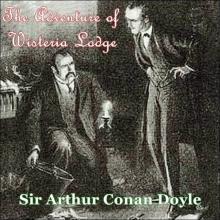 The Adventure of Wisteria Lodge
The Adventure of Wisteria Lodge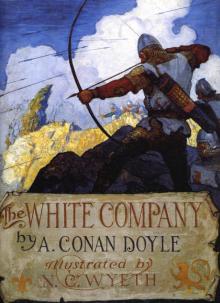 The White Company
The White Company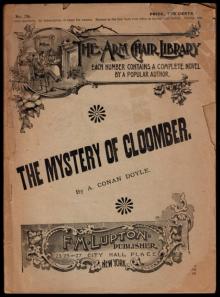 The Mystery of Cloomber
The Mystery of Cloomber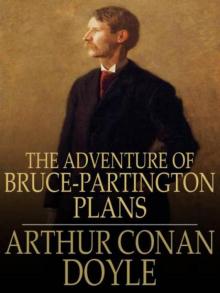 The Adventure of the Bruce-Partington Plans
The Adventure of the Bruce-Partington Plans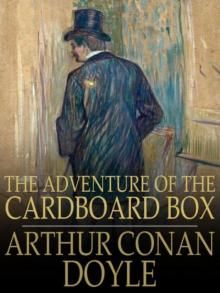 The Adventure of the Cardboard Box
The Adventure of the Cardboard Box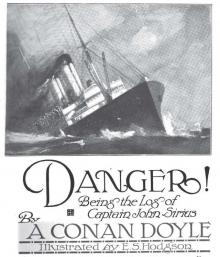 Danger! and Other Stories
Danger! and Other Stories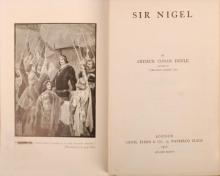 Sir Nigel
Sir Nigel The Return of Sherlock Holmes
The Return of Sherlock Holmes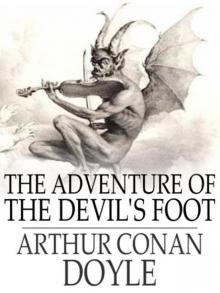 The Adventure of the Devil's Foot
The Adventure of the Devil's Foot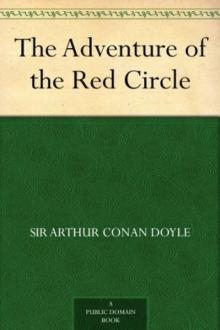 The Adventure of the Red Circle
The Adventure of the Red Circle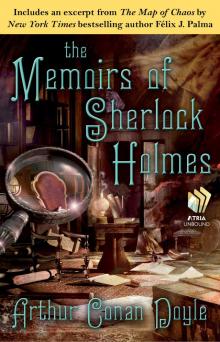 The Memoirs of Sherlock Holmes
The Memoirs of Sherlock Holmes The Adventure of the Yellow Face
The Adventure of the Yellow Face The Adventure of the Norwood Builder
The Adventure of the Norwood Builder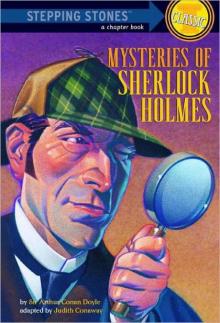 Mysteries of Sherlock Holmes
Mysteries of Sherlock Holmes The Adventure of the Missing Three-Quarter
The Adventure of the Missing Three-Quarter The Adventure of the Final Problem
The Adventure of the Final Problem A Scandal in Bohemia
A Scandal in Bohemia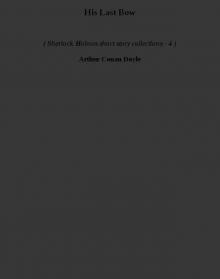 His Last Bow shssc-4
His Last Bow shssc-4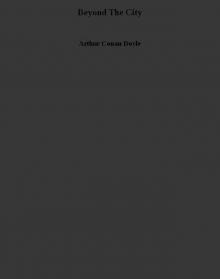 Beyond The City
Beyond The City The Adventure of the Gloria Scott
The Adventure of the Gloria Scott The Parasite
The Parasite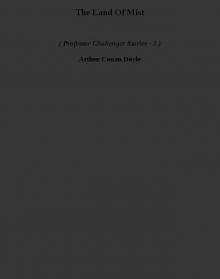 The Land Of Mist pcs-3
The Land Of Mist pcs-3 The Adventure of the Musgrave Ritual
The Adventure of the Musgrave Ritual The Complete Sherlock Holmes, Volume I (Barnes & Noble Classics Series)
The Complete Sherlock Holmes, Volume I (Barnes & Noble Classics Series) The Adventure of the Stockbroker's Clerk
The Adventure of the Stockbroker's Clerk The Adventure of the Copper Beeches
The Adventure of the Copper Beeches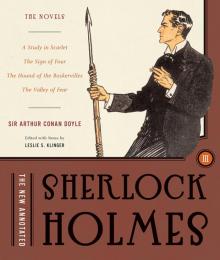 The New Annotated Sherlock Holmes
The New Annotated Sherlock Holmes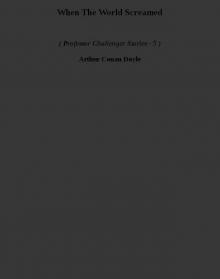 When The World Screamed pcs-5
When The World Screamed pcs-5 The Adventure of the Six Napoleons
The Adventure of the Six Napoleons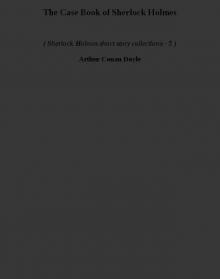 The Case Book of Sherlock Holmes shssc-5
The Case Book of Sherlock Holmes shssc-5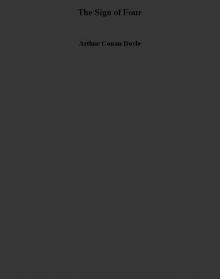 The Sign of Four
The Sign of Four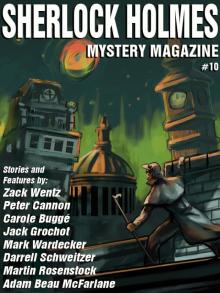 Sherlock Holmes Mystery Magazine #10
Sherlock Holmes Mystery Magazine #10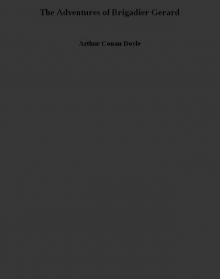 The Adventures of Brigadier Gerard
The Adventures of Brigadier Gerard The Adventure of the Second Stain
The Adventure of the Second Stain The Adventure of the Engineer's Thumb
The Adventure of the Engineer's Thumb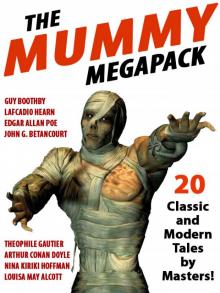 The Mummy Megapack
The Mummy Megapack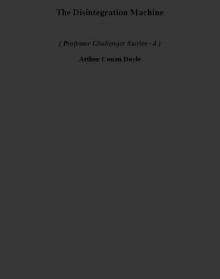 The Disintegration Machine pcs-4
The Disintegration Machine pcs-4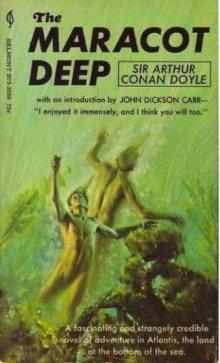 The Maracot Deep
The Maracot Deep The Five Orange Pips
The Five Orange Pips The Adventure of the Crooked Man
The Adventure of the Crooked Man The Adventure of the Blue Carbuncle
The Adventure of the Blue Carbuncle The Adventure of Silver Blaze
The Adventure of Silver Blaze The Adventure of the Solitary Cyclist
The Adventure of the Solitary Cyclist The Adventure of the Naval Treaty
The Adventure of the Naval Treaty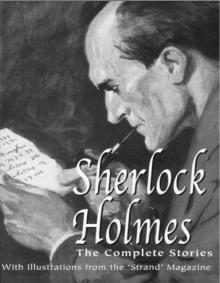 Sherlock Holmes. The Complete Stories
Sherlock Holmes. The Complete Stories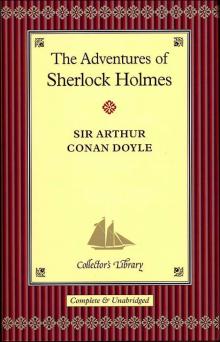 The Adventures of Sherlock Holmes (sherlock holmes)
The Adventures of Sherlock Holmes (sherlock holmes) The Adventure of the Empty House
The Adventure of the Empty House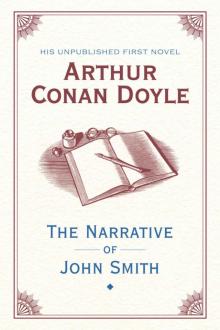 The Narrative of John Smith
The Narrative of John Smith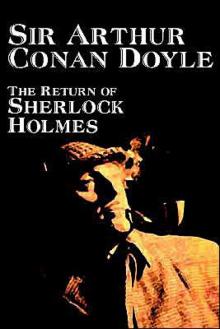 The Return of Sherlock Holmes (sherlock holmes)
The Return of Sherlock Holmes (sherlock holmes) The New Revelation
The New Revelation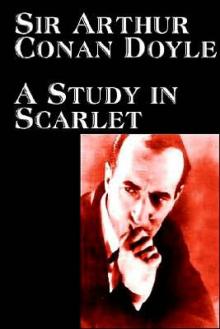 A Study in Scarlet (sherlock holmes)
A Study in Scarlet (sherlock holmes) The Vital Message
The Vital Message Sherlock Holmes Complete Collection
Sherlock Holmes Complete Collection Round the Red Lamp
Round the Red Lamp The Boscombe Valley Mystery
The Boscombe Valley Mystery The Adventure of the Beryl Coronet
The Adventure of the Beryl Coronet The Refugees
The Refugees The Adventure of the Three Students.
The Adventure of the Three Students.